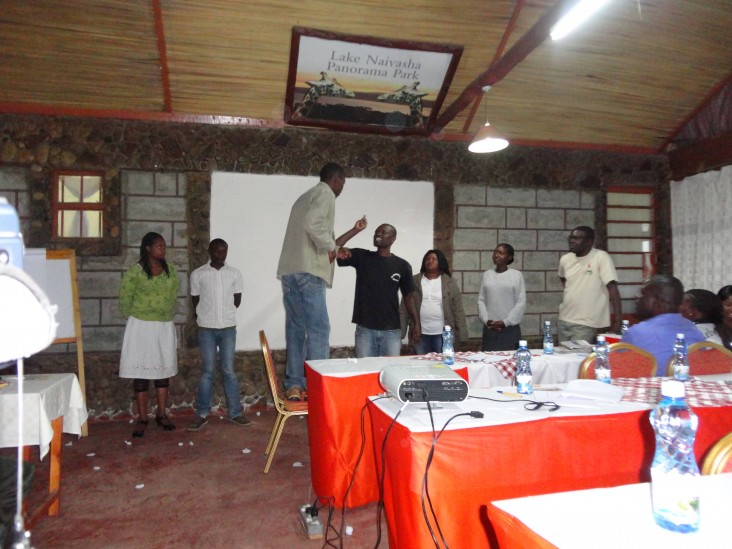
Ramadan Otieno has seen his community divided by the effects of xenophobia. In an area where ingrained fears and false perceptions of ethnic groups create a great divide, al-Shabaab, a terrorist organization, has taken advantage of the situation, exploiting locals’ lack of knowledge to incite violence. Frequently, communities will attribute the violence to an ethnic or religious group, rather than the organization.
“We forget that al-Shabaab are using [both Muslim and non-Muslim] youth from our communities,” Otieno said.
To address this problem, the Office of Transition Initiatives worked with the Rural Women Peace Link (RWPL) organization to hold a forum on xenophobia in Vihiga, located in Western Kenya. Thirty participants discussed xenophobia and the role it plays in al-Shabaab youth recruitment in the region.
RWPL conducts forums like this one in Rift Valley and Western Province to create an open dialogue and a space for locals to safely learn how to recognize xenophobic behavior, particularly in relationships with Muslim neighbors.
Since the deployment of Kenyan troops to Somalia in October 2011 during operation Linda Nchi, there have been several bomb attacks in Nairobi, Mombasa and Garissa. Vihiga participants cited these attacks, as well as the presence of al-Shabaab, as a reason for discrimination against Muslims.
Within the community, there is a perception that al-Shabaab is working to create a religious war between Christians and Muslims, leading locals to believe they need to be proactive in their defense. A participant stated that this, compounded with a lack of employment among youth, can drive young men to join the terrorist organization, sometimes traveling to Somalia with the expectations of payment.
Participants also alleged that there is escalating recruitment by al-Shabaab among both the Somali and non-Somali Kenyan populations. This has led to growing criticism and discrimination against Kenyan Somalis and Muslims in many parts of the country. The forum participants recommended that civic education be done in every community to stop the peddling of stereotypes.
Forums like this one in Vihiga allow communities to step back and examine the repercussions of xenophobia and its role in the continuing cycle of violence.
“We tend to shift blame to certain people who we believe are involved in terror attacks, only to find out that they are innocent,” Otieno said.







Comment
Make a general inquiry or suggest an improvement.